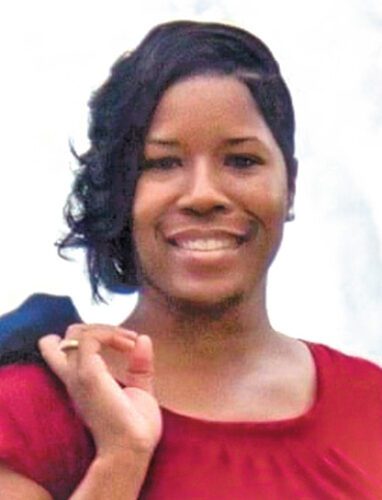
Tanika Williams
Mental health is a common issue that affects people of all races and cultural backgrounds. However, these challenges are not new discoveries. Mental health has always been an underlying issue in our society, but many people are too afraid to have the conversation. Black History Month in February is a time to highlight the different ways our cultural backgrounds, beliefs, and values can impact the way we view and talk about mental health.
Culture plays an interesting role in mental health issues, and people from different backgrounds often experience the same situation in different ways. For Black people, people are more likely to report symptoms of persistent psychological distress, such as feelings of sadness and fear of activities of daily living. But only one in three black adults seek treatment.
You may wonder why this is so, but there are many barriers to mental health for this group, including:
• stigma: This is one of the most common reasons why people avoid treatment for mental health problems, regardless of culture or background. Without considering race, people worry about how others will perceive them if they have a mental illness. Many people feel embarrassed or afraid to have difficult conversations. Black adults, especially older adults, view mental health conditions as a result of personal weakness.
• Socioeconomic status: 10.4% of Black adults do not have health insurance. People who cannot afford the care they need to treat their mental illness do not seek treatment.
• Distrust of medical care: There is a significant lack of trust in the medical community among black Americans. This is largely due to the past experience of Black communities in facing barriers that prevent equal access to care.
• Misdiagnosis: When many Black people describe depression, they describe mental illness in terms of physical symptoms, such as body pain. Lack of cultural competency can result in symptoms being overlooked or misdiagnosed as simply physical. Additionally, Black people are more likely to be misdiagnosed as schizophrenic when they develop symptoms associated with mood disorders.
So how can we break down these barriers and ensure we all get the support and treatment we need? The first step is to have the courage to admit that we need help. Once you decide it’s time to seek professional help, you should consider the following:
• Only 6.2% of psychologists, 5.6% of advanced psychiatric nurses, and 12.6% of social workers are members of minorities. Don’t let the lack of a representative stop you from getting the treatment you need.
• Research BIPOC providers in your area. Your local community or religious organization may also have a list of available mental health providers, and online medical directories can also help you identify potential providers.Use specific search terms such as “Black Therapist” or “Multicultural Counselor” Help narrow down your search. You can also find recommendations from friends and family.
• A primary care physician you already trust is a great place to start, as they can provide an initial health assessment and refer you to a multicultural mental health professional.
• Read online reviews and testimonials to determine if a provider is right for you. This will give you insight into their approach and whether they are best equipped to meet your needs.
• When you first meet your provider, ask questions to get a sense of their level of cultural awareness. During our first meeting, we will discuss your concerns and determine if the provider is right for you. Ask if they have experience treating people from similar backgrounds or if they have multicultural experience.
• Consider local businesses with in-person and telehealth options. This allows you to significantly expand your network of potential providers that best suit your needs.
As you embark on this mental health journey, it is important to remember that you are not alone. Family, close friends, and support groups can all help you feel seen and heard. Admit that you need help and don’t be afraid to rely on others if you need it. Everyone’s experiences are unique, but talking openly about your journey and listening to the experiences of others can help you realize that others are struggling too. It might be helpful.
The statistics don’t lie – mental health is a global issue and we need to work together to break down the stigma and ensure everyone, from all backgrounds, gets the help they need. Taking care of your health helps educate and set a good example for future generations.
It will take all of us, but together we can break the silence around mental health.
Tanika Williams is a Psychiatric Mental Health and Adult Gerontology Primary Care Nurse at Elite DNA Behavioral Health, a comprehensive mental and behavioral services provider located throughout Florida. For more information, please visit EliteDNA.com.


